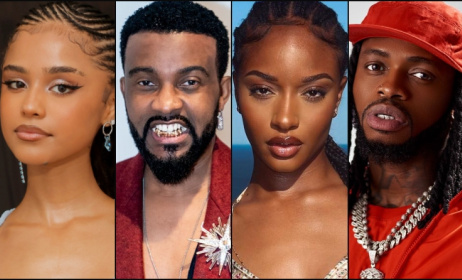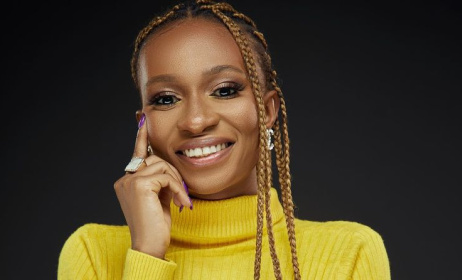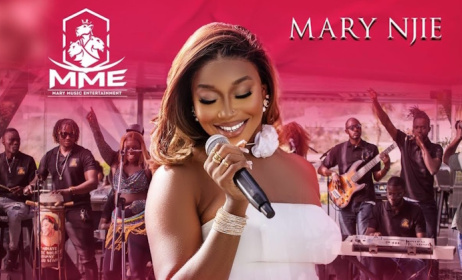Album review: Burna Boy’s Love, Damini is confused yet enticing
Now that he has a Grammy win on his CV, Burna Boy tenders a reprint of the persona from before his great reset of 2019 – the one almost entirely occupied by a healthy hankering for whiskey, women and weapons, and little interest in burdening his mind with too much activist talk.
 Burna Boy turned 31 on 2 July.
Burna Boy turned 31 on 2 July.
Pop leads Love, Damini, a slapdash portrait of the Nigerian singer’s mind at the age of 31. Still, judging by how the album opens and closes (with the soothing voices of five-time Grammy winners Ladysmith Black Mambazo), one suspects that Burna Boy still has an eye on the gilded gramophone, in case the Recording Academy, which seems to define ‘world music’ with the likes of the legendary South African a capella group in mind, is watching.
The goal of Love, Damini, Burna Boy’s sixth album and a follow-up to 2020’s Twice As Tall, is to create an air of a soft coming of age. “A roller-coaster ride,” the musician explained last week upon the arrival of the LP, which partially derives its title from Burna Boy’s first name. “After turning 30, birthdays seem to make you reflect on your life choices, or a lack thereof – your goals, dreams, hopes, achievements and fears.”
It’s little wonder then that rattling through the crowded album (it comes in at an unnecessary 19 tracks), we notice Burna Boy drift away into many different channels. Whoever seeks cohesion on an album exceeding 12 songs is, well, very ambitious. As a result, your summation of the album will depend entirely on which direction you plunged into it.
The album finds Burna Boy trapped in a vortex of human emotions: he is both a “girl dem controller” and an unlucky lover. He also admits to anger issues, being too busy for the things that truly matter, and still wonders, “How bad could it be?”
By the time the album reaches the hook on ‘It’s Plenty’, which sits mid-point of the project, a particularly notable conclusion reveals itself, one that attempts to unify the varying themes of the work, and the current stage of his career:
For this life I dey
I want to be celebrated
Don’t wanna waste my days
I want to spend them on enjoyment.
Nowadays, it is especially important for Burna Boy to stress that his music style is Afro-fusion and not Afrobeats, whose massive international acceptance over the years has enabled him to become a global star. As the singer explained to Daily Show host Trevor Noah in 2019, Afro-fusion starts from Fela Kuti’s Afrobeat and then expands into other things. And so, the work, while it boasts floating horns and delightful guitar lapping that distinguish Afrobeat/s, is also lined and littered with everything from highlife, amapiano, road rap, dancehall and pop.
Burna Boy bears no direct relation to the Nigerian iconoclast, yet his grandfather was Fela’s first manager. Judging by his fervent interest in the preservation of the purity of Fela’s sound and place in history, one would think that he comes from the Kuti bloodline. Aside from the actual music, a key aspect of Afrobeat is the grassroots activism that often got Fela in trouble with the government. Burna Boy is not nearly an activist as Fela was. Still, he seems to view Afrobeat as sacred and wants to ensure that it is respected enough to be left out of the ongoing genre wordplay that has webbed Afropop from West Africa.
The album gets a number of things right: it is helped by a title that is broad enough to accommodate its author’s mental jumble, but also precise enough in the candid journaling of his most intimate thoughts. It also benefits from an all-star guest list, superior production and a cinematic character held together by compelling soundbites.
Because of how malleable his voice is, Burna Boy is able to stir emotional vibrations that speak directly to the theme he is attacking. Notice the turbulent vigour on ‘Kilometre’, the sobriety on ‘Common Person’, the vain polish on ‘Different Size’, his subtle harmonies as he helms opposite ends of an octave with Ed Sheeran on ‘Fall My Hand’, and the toothsome toxicity of ‘Last Last’, which samples Toni Braxton’s 2000 single ‘He Wasn’t Man Enough’. There’s also the meditative air on ‘Whiskey’, which is the one overtly political track on this album. Dedicated to his home town of Port Harcourt, ‘Whiskey’ invokes a questioning feeling of love, grief and pity.
Even if it arrives largely bereft of the political underpinnings that defined his two previous LPs and gained him notice on music’s biggest night, there’s no denying that Burna Boy’s latest project is smartly curated – enough to ensure thrilling first-week numbers (check the charts).
Overall, Love, Damini celebrates the bright side of things as much as it contemplates ungodly hours and the shortcomings that attend adulthood. A lot is happening in the mind of Burna Boy.
Artist: Burna Boy
Album: Love, Damini
Label: Atlantic Records
Year: 2022




























Commentaires
s'identifier or register to post comments